Seasonal Changes and Nasal Health: Preparing for the Shifts
Seasonal changes have a significant impact on nasal health. Sudden weather changes can cause sinus problems such as pressure, headaches, congestion, and infections. These changes can be attributed to various factors, including changes in temperature, humidity levels, and allergen exposure. Understanding the effects of seasonal changes on nasal health is essential for taking proactive steps to maintain optimal nasal health.
Understanding the Impact of Seasonal Changes on Nasal Health
Weather patterns and barometric pressure can trigger sinus symptoms and pain. Paying attention to changes in barometric pressure can help prevent sinus headaches. Additionally, dry air in the fall and winter months can lead to respiratory problems and dry sinuses. When the air becomes drier, the nasal passages can become dry as well, making them more susceptible to irritation and infections. This can result in symptoms such as nasal congestion, dryness, and discomfort.
For example, during the transition from summer to fall, the weather becomes cooler and drier. This change can cause a decrease in humidity levels, leading to dry nasal passages and an increased risk of respiratory problems. Individuals may experience symptoms such as nasal congestion, dryness, and discomfort. Understanding these effects of seasonal changes can help individuals take proactive steps to maintain nasal health.
Investing in a humidifier can help keep sinuses healthy during dry months. Humidifiers add moisture to the air, which can help alleviate dryness and irritation in the nasal passages. This can be particularly beneficial during the fall and winter months when indoor heating systems can further dry out the air. By using a humidifier, individuals can create a more comfortable and moisturized environment for their sinuses.
Tips for Preparing for Seasonal Shifts
Preparing for seasonal shifts is crucial for maintaining optimal nasal health. By taking proactive steps, individuals can minimize the impact of seasonal shifts on their nasal health. Here are some helpful tips to consider:
- Supplement with key immune nutrients and use nasal lavage for allergies: As fall approaches, it's beneficial to supplement your diet with immune-boosting nutrients such as vitamin C and zinc. These nutrients can help strengthen the immune system, making it more resilient to seasonal changes.Nasal lavage, using a saline solution, can help flush out allergens and irritants from the nasal passages, reducing the risk of allergy-related symptoms.
For instance, incorporating foods rich in vitamin C, such as citrus fruits and bell peppers, can provide an extra boost to the immune system. Additionally, using a nasal lavage kit, which typically consists of a saline solution and a nasal rinse bottle, can help wash away allergens and irritants from the nasal passages, providing relief from congestion and promoting nasal health.
- Start a detox plan: To support overall wellness and prepare the body for the seasonal transition, consider starting a detox plan in late September or early October. Detoxification can help eliminate toxins from the body, reduce inflammation, and support the immune system. This plan can include eliminating certain foods, such as processed foods and added sugars, that can contribute to inflammation and weaken the immune system.
For example, individuals can focus on consuming whole foods, such as fruits, vegetables, and lean proteins, during the detox plan. These foods provide essential nutrients and antioxidants that support the body's natural detoxification processes. Additionally, staying hydrated by drinking plenty of water can help flush out toxins and promote overall health.
- Emphasize cooked foods rich in immune-supportive nutrients: During the fall season, focus on incorporating cooked foods that are rich in immune-supportive nutrients into your diet. Cooking foods can enhance their digestibility and nutrient availability, making it easier for the body to absorb the essential nutrients. Emphasize foods that are rich in vitamins, minerals, and antioxidants, such as soups, stews, and roasted vegetables.
For instance, including ingredients like garlic, ginger, turmeric, and mushrooms in your cooked meals can provide immune-boosting benefits. These foods are known for their antibacterial, antiviral, and anti-inflammatory properties, which can help support the immune system and promote nasal health.
- Practice mindfulness and self-care: Seasonal shifts can bring about changes in mood and energy levels. Emphasize the importance of mindfulness practices, such as meditation or yoga, to promote overall well-being during these transitions. Self-care activities like taking warm baths or engaging in hobbies can also help reduce stress and support nasal health.
For example, engaging in mindfulness practices can help reduce stress levels, which can have a positive impact on nasal health. Chronic stress can weaken the immune system and make individuals more susceptible to infections and allergies. By prioritizing self-care and stress management techniques, individuals can support their overall well-being and maintain optimal nasal health during seasonal shifts.
The Benefits of Using Antibacterial Nasal Sprays
Antibacterial nasal sprays offer several benefits for maintaining nasal health during seasonal changes. These sprays can help reduce the risk of infections and alleviate symptoms of sinusitis. Antibacterial nasal sprays work by targeting and neutralizing harmful bacteria in the nasal passages, reducing the risk of infections and promoting nasal health.
Using an antibacterial nasal spray can help cleanse the nasal passages, remove bacteria and allergens, and provide relief from congestion. The spray's antibacterial properties can help prevent the growth of harmful bacteria in the nasal cavity, reducing the risk of infections. Additionally, using an antibacterial nasal spray can help alleviate symptoms of sinusitis, such as nasal congestion and facial pressure.
It is important to use a high-quality nasal spray from a trusted brand, such as the Covixyl antibacterial nasal spray offered by Hope Health Supply. These nasal sprays are formulated with ingredients that help maintain a healthy nasal environment and provide relief from congestion and discomfort. Regular use of an antibacterial nasal spray can support overall nasal health during seasonal shifts.
Managing Allergies During Different Seasons
Allergies can significantly impact nasal health during different seasons. It is important to manage allergies effectively to minimize their impact on nasal health. Here are some tips for managing allergies:
- Limit trigger foods: Certain foods can trigger allergic reactions and worsen allergy symptoms. For example, caffeine, nuts, and shellfish are known to exacerbate allergies.Limiting the consumption of foods that trigger allergy symptoms can help alleviate symptoms. Additionally, reducing the intake of processed foods and foods high in additives can also be beneficial for managing allergies.
For instance, individuals with seasonal allergies should be cautious when consuming foods and beverages that contain caffeine, as it can stimulate the release of histamine and worsen allergy symptoms. By being mindful of trigger foods and making appropriate dietary adjustments, individuals can minimize the impact of allergies on their nasal health.
- Include immune-boosting foods: Incorporate immune-boosting foods into your diet to support your body's ability to handle allergies. Foods rich in vitamin C, such as berries and leafy greens, can help strengthen the immune system and reduce allergy symptoms. Additionally, including anti-inflammatory foods, such as turmeric and ginger, can help alleviate allergy-related inflammation.
For example, consuming a variety of fruits and vegetables that are rich in antioxidants can provide the body with the necessary nutrients to support the immune system. These foods can help reduce inflammation and provide relief from allergy symptoms. Incorporating immune-boosting foods into your diet can play a significant role in managing allergies and maintaining nasal health.
- Get enough rest: A good night's sleep is essential for overall health and can help prevent worsened allergy symptoms. Resting well can decrease the chances of secondary infections and help manage allergies effectively. Aim for 7-8 hours of quality sleep each night.
For instance, individuals with allergies may experience disrupted sleep due to symptoms such as nasal congestion and sneezing. By prioritizing sleep and creating a sleep-friendly environment, individuals can support their immune system and better manage their allergies.
- Consult an ENT specialist: Before the peak pollen season, consider visiting an Ear, Nose, and Throat (ENT) specialist to discuss treatment options and preventive measures. An ENT specialist can provide personalized advice and recommend appropriate allergy relief products, such as masks and nasal sprays. They can also perform allergy testing to identify specific allergens that trigger symptoms.
For example, an ENT specialist can conduct an allergy test to determine the specific allergens that trigger nasal symptoms. Based on the test results, the specialist can provide targeted treatment options and preventive measures to manage allergies effectively. Seeking professional guidance can significantly improve nasal health during different seasons.
Understanding Sinusitis and Its Symptoms
Sinusitis is a common condition that affects the nasal health of many individuals. Understanding sinusitis and its symptoms is essential for early detection and appropriate management. Here are some key points about sinusitis:
- Sinusitis is inflammation or infection of the sinuses lining the nasal cavity. It can occur as a result of various factors, including viral or bacterial infections, allergies, or structural issues in the nasal cavity.
- It can be classified as acute sinusitis, which lasts for four weeks or less, or chronic sinusitis, which lasts for three months or longer. Acute sinusitis is usually caused by a viral infection, while chronic sinusitis is often associated with persistent inflammation or recurring infections.
- Sinusitis affects about 15% of the population annually and is the most common reason for antibiotic prescriptions in the US. It is a prevalent condition that can significantly impact nasal health and quality of life.
- Symptoms of sinusitis include nasal congestion, facial pressure or pain, nasal discharge, and a decreased sense of smell. Individuals with sinusitis may also experience fatigue, cough, and a feeling of fullness in the ears.
- Sinusitis can affect people of all races and genders, although women tend to be more affected. Other risk factors for sinusitis include a history of allergies, asthma, nasal polyps, or structural abnormalities in the nasal cavity.
For example, individuals experiencing symptoms such as persistent nasal congestion, facial pain or pressure, or a prolonged lack of sense of smell should consider the possibility of sinusitis. Seeking medical attention from a healthcare professional, such as an ENT specialist, is important for accurate diagnosis and appropriate treatment.
Diagnosing and Treating Sinusitis
Diagnosing and treating sinusitis requires professional medical guidance. Here are some important considerations:
- Sinusitis can be diagnosed based on symptoms, duration, and imaging tests like CT scans. A healthcare professional, such as an ENT specialist, can evaluate the situation and provide effective treatment options for long-term relief. During the evaluation, the healthcare professional will assess the individual's symptoms, medical history, and perform a physical examination to determine the cause of sinusitis.
- In cases where symptoms persist, disrupt daily life, or there are repeat sinus infections or nasal polyps, a referral to a specialist may be necessary. An ENT specialist has specialized knowledge and expertise in diagnosing and treating sinusitis.
- Keeping detailed records of symptoms, treatments, and sinus history is important when visiting a specialist. This information can help in accurate diagnosis and the development of an appropriate treatment plan. Individuals should provide information about their symptoms, duration, and any previous treatments or surgeries related to sinusitis.
- Treatment options for sinusitis depend on the cause and individual response. They may include medications, surgery, and managing allergies. The goal of treatment is to alleviate symptoms, reduce inflammation, and prevent future infections. Mild cases of sinusitis can often be managed with over-the-counter medications, such as nasal sprays or saline rinses, while severe or chronic cases may require prescription medications or surgical intervention.
- Severe sinusitis can lead to complications, such as infections in the eyes or brain, which require emergency treatment. It is important to seek immediate medical attention if symptoms worsen rapidly, or if there are signs of severe infection, such as high fever, severe headache, or changes in vision.
For instance, individuals with chronic sinusitis or severe symptoms should seek the expertise of an ENT specialist. These specialists can provide a comprehensive evaluation, diagnose the underlying cause, and recommend appropriate treatment options. They may prescribe antibiotics to treat bacterial infections, corticosteroids to reduce inflammation, or recommend surgical intervention in cases where other treatments have been ineffective.
Home Remedies for Sinusitis Relief
In addition to medical treatment, home remedies can provide relief for sinusitis symptoms. Here are some remedies to consider:
- Saline rinses: Using a saline solution to rinse the nasal passages can help alleviate congestion and promote sinus health. Saline rinses help flush out mucus, allergens, and irritants from the nasal passages, providing relief from symptoms and supporting nasal health. They can be easily prepared at home using a saline solution or purchased over-the-counter.
- Steam inhalation: Inhaling steam from a bowl of hot water or using a humidifier can help moisten the nasal passages and relieve discomfort. The warm, moist air can help reduce inflammation and loosen mucus, making it easier to breathe. Adding essential oils, such as eucalyptus or peppermint, to the steam can provide additional soothing benefits.
- Warm compresses: Applying warm compresses to the face can help reduce facial pain or pressure associated with sinusitis. The warmth can help improve blood circulation and alleviate inflammation, providing temporary relief from discomfort. Simply soak a clean towel in warm water, wring out the excess, and place it over the affected area.
- Rest and hydration: Getting plenty of rest and staying hydrated can support the body's natural healing process. Rest allows the immune system to focus on fighting off infections, while hydration helps thin mucus and prevent dehydration, which can worsen symptoms. Drinking an adequate amount of water throughout the day is essential for maintaining overall health and promoting nasal health.
- Avoiding irritants: Avoiding irritants such as cigarette smoke, strong chemicals, and pollutants can help prevent further irritation of the sinuses. These irritants can worsen symptoms and prolong the healing process. It is important to create a clean and smoke-free environment to support nasal health.
For example, individuals can find sinus-related health supplies such as masks, nasal sprays, and home COVID tests offered by Hope Health Supply. These products can help individuals manage their sinusitis symptoms and promote overall nasal health. Using masks can help filter out allergens and irritants from the air, reducing the risk of nasal inflammation. Nasal sprays can provide relief from congestion and discomfort, while home COVID tests offer convenience and peace of mind.
Conclusion: Maintaining Nasal Health Throughout the Seasons
Maintaining nasal health is crucial for overall well-being, especially during seasonal shifts. By understanding the impact of seasonal changes on nasal health and taking proactive steps, individuals can minimize the effects of seasonal shifts on their sinuses. Incorporating practices such as using antibacterial nasal sprays, managing allergies, and practicing home remedies can support optimal nasal health.
References:




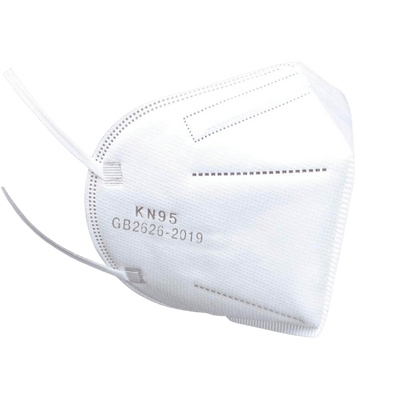
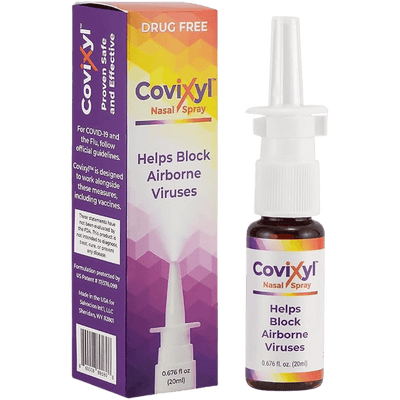
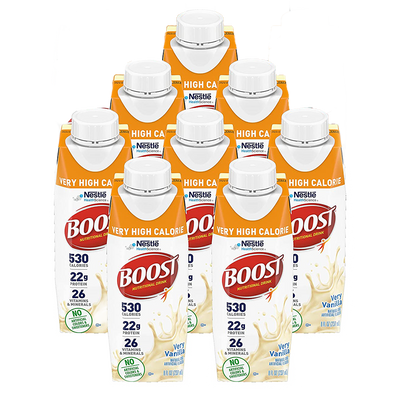
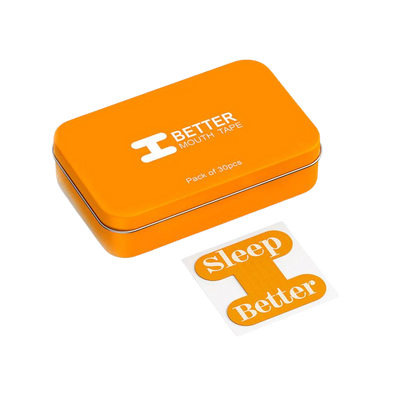
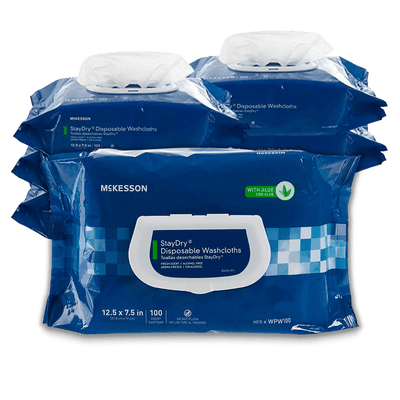
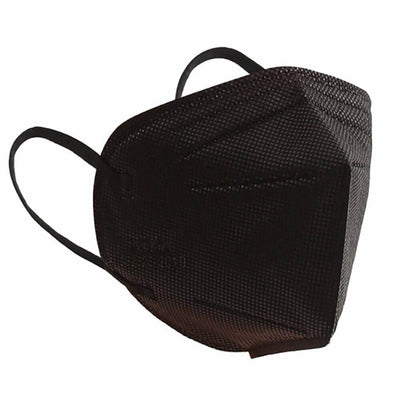

Leave a comment